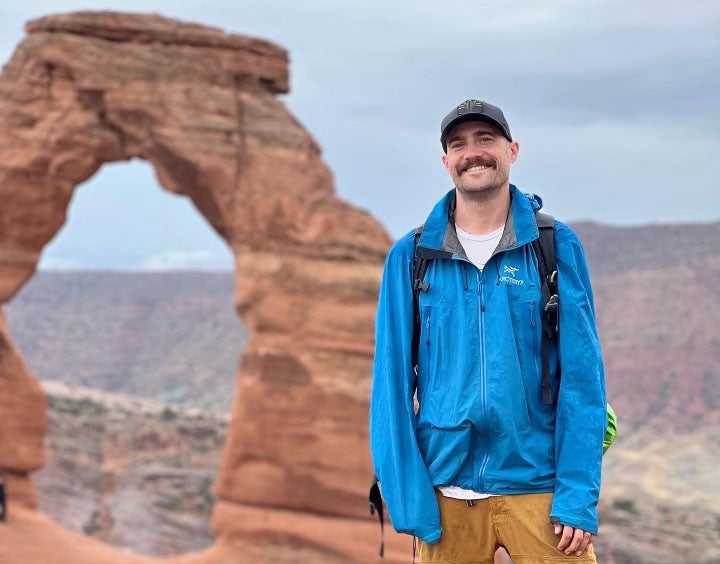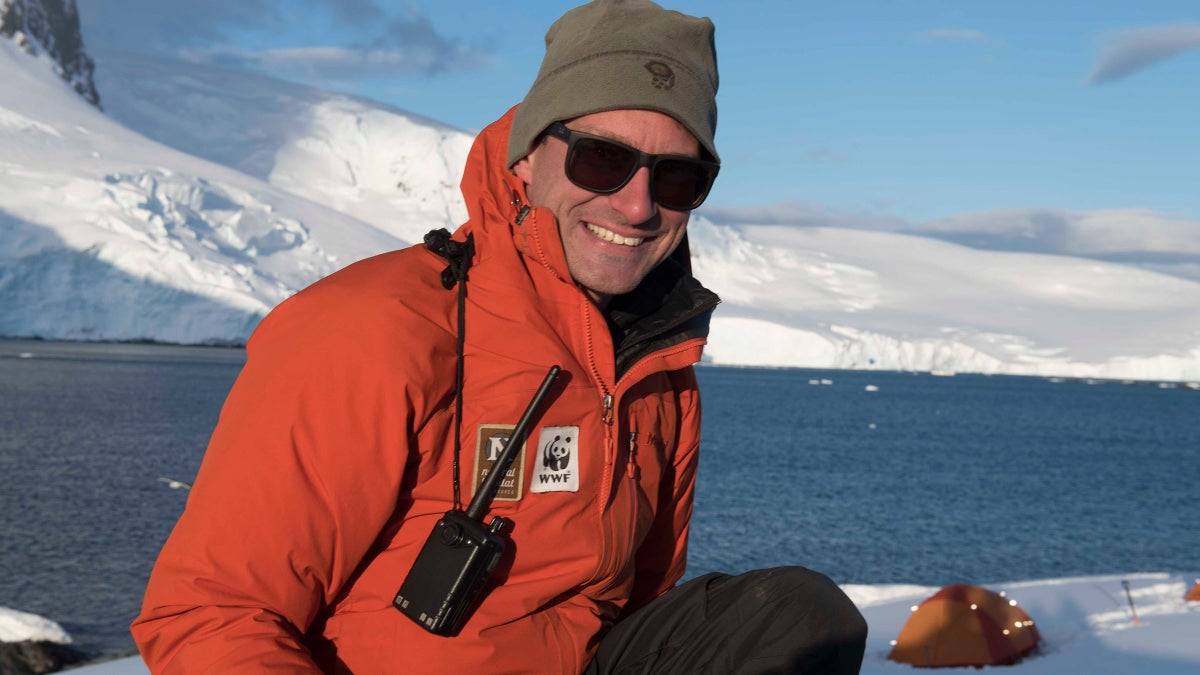Products You May Like
Mike Kmit didn’t always have his sights set on becoming a full-time outdoor guide. Fresh out of business school in 2017, he was juggling two part-time jobs as a night camp instructor at the Phoenix Zoo and as a footwear specialist at the REI store in Tempe, Arizona
“I had a coworker at REI who worked as a guide and he always had exciting tales about the gig,” said Kmit. His interest piqued, he signed up for a wilderness first responder class with NOLS and soon landed a job leading day hiking, biking, and rafting trips out of Scottsdale for local outfitter Arizona Outback Adventure (AOA), ”
“I was hired, largely, to smile and point out waterfalls while the senior guides handled most of the real guiding,” he said. “I didn’t know it at the time, but my training would be short and went like this: Come along as a guest for two training trips, learn all you can, and then fly, little birdie!”
Five years later, guiding is Kmit’s day to day. He now leads backpacking and camping adventures as a full-time multi-day interpretive guide with REI Experiences.
In 2020, 160.7 million Americans ages six and over participated in at least one outdoor activity—a total of 7.1 million more participants than in 2019, according to the Outdoor Industry Association. As more and more novices venture outside, guiding them has become big business. REI in particular saw a more than 60 percent increase over the last 12 months for its REI Experiences offerings, a growing roster of 124 multiday adventure travel trips led by professional local guides around the U.S.
As the business has grown, so have opportunities for guides. After REI acquired AOA in 2019 to grow its guide and trip capacity, Kmit says his life as a guide completely changed. Up until that point, he scrambled for consistent hours, scraped by on entry-level pay, and played it safe on backcountry adventures because of his limited health insurance coverage.
Post-acquisition, REI changed its pay format from a daily rate to an hourly rate to gain a competitive edge in a tight job market. Kmit’s upgraded gig guaranteed a 16-hour workday and overtime, which adds up quickly. To boot, guides received health insurance with an HSA option and they became eligible for paid vacation and sick time, a 401k plan, annual bonuses, and even sabbaticals—all the benefits of a quality, well-balanced occupation. He was no longer living the dirtbag lifestyle.

“[Before guiding with REI], I remember feeling like it was a privilege to be doing the work I do,” said Kmit. “But that’s not to say you shouldn’t be making a decent living—especially when you’re responsible for keeping people safe in the backcountry and in potentially life-threatening situations.”
Kmit’s story mirrors many US-based guides’ paths into the industry—a journey that demands grueling hours of work, technical know-how, and life-saving wilderness skills (built over many tireless years in the field). Colby Brokvist, an expedition leader, guide, trainer, and author of The Professional Guide’s Handbook, says leveling up to full-time work, or even leading global expeditions, requires an additional tier of experience, leadership, and professionalism in the guiding world.
“It’s easy to go out there and lead a river rafting trip or a top-rope climb for a day—but it’s not until [the guides] have long-term wilderness experience that they reach the heart of guiding: The real-life leadership, team, and risk management, and operations and logistics execution,” said Brokvist. “These sorts of things require operating at a higher level and come with more experience, training, and bigger knowledge base.”
Both Kmit and Brokvist also attest to the fact that guiding is a job of many jobs.
Not only are they providing an entertaining and awe-inspiring experience in the wilderness; They also take on the job of leader, role model, coach, environmental teacher, and literal lifesavers.
“Every guide has different skills, stories, and passions they bring with them to work every day,” said Kmit. “If [travelers] want to hone their backpacking or camping skills, or learn more about flora, fauna, geology, indigenous cultures, and other elements of the natural world—guides will be able to speak to those things. You walk away from a trip not just loving a place, but feeling a depth of connection you wouldn’t get by merely showing up and reading a few signs.”
In his book, Brokvist describes one of many roles that guides must play as “The Interpreter.” This role requires guides to develop curiosity among travelers by helping people think more deeply about the places that they’re in.
“Being the Interpreter means guides can provide insight and commentary along trips that focus on things like responsible visitation and conservation, social empowerment, and amplifying local voices. Guides can help connect the guests with local stories—whether they be ecological, cultural, social, economic—to build deeper connections with the people and the places and the wildlife that they’re visiting with.”
The market for guides may only be growing, too. In addition to multiday adventure trips, REI also continues to host day trips and educational programming in 14 cities to teach and help people sharpen their outdoor skill sets for activities like camping, cycling, paddling, and climbing.
Mark Seidl, REI Experiences divisional vice president, says the company has big goals for meeting and driving demand for multiday adventure travel trips, tours, and rentals; the goal, he says, is to get 3 million people outside every year. The company also recognizes that the quality and output of its team of thousands of guides remain a major reason for their success.
“We believe the guide is the product and they are the most important part of the customer experience. REI is committed to ensuring we attract and retain the best guides in the industry—whether they are seasoned or just starting their career—and our benefits and pay reflect this intention.”
As interest in guided outdoor adventures continues to explode, outfitters like REI have their work cut out for them to continue attracting and hiring high-quality guides fit for leading groups into the wilderness.
“What used to be a dirtbag summer hustle has evolved into a year-round respectable gig with long-term desirability in pay, benefits, and quality of life,” said Kmit. “There’s now an opportunity to view guiding in a professional light.”
